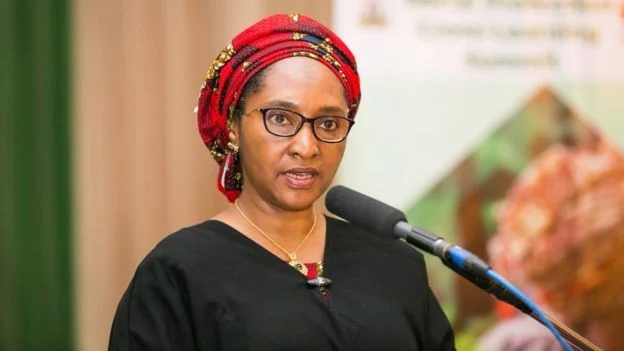The Federal Government of Nigeria announced that the oil sector’s contribution to the nation’s Gross Domestic Product (GDP) is projected to decline to 5% between 2023 and 2025, down from 5.19% in the fourth quarter of 2021.
This projection was outlined in the draft Medium Term Expenditure Framework (MTEF) 2023-2025, presented by the Minister of Finance, Budget, and National Planning, Zainab Ahmed, during a Federal Executive Council (FEC) meeting chaired by President Muhammadu Buhari in Abuja.
Key Projections in the MTEF
Minister Ahmed detailed the assumptions underpinning the MTEF, stating,
“Crude oil prices are projected at $70 per barrel for 2023, $66 per barrel for 2024, and $62 per barrel for 2025.
Crude oil production is estimated at 1.69 million barrels per day (mbpd) for 2023 and 1.813 mbpd for both 2024 and 2025.”
She further noted that Nigeria’s nominal GDP is expected to grow to N225.5 trillion by 2023, with the non-oil sector contributing 95% and the oil sector only 5%.
By 2025, the nominal GDP is projected to reach N280.7 trillion, maintaining Nigeria’s position as Africa’s largest economy.
Factors Driving the Decline
The projected decline in the oil sector’s GDP contribution is attributed to several factors. The Nigeria Bureau of Statistics (NBS) reported in February 2022 that the oil sector’s contribution fell to 5.19% (N1.055 trillion) in Q4 2021, a 3.68 basis point drop from 5.87% in Q4 2020.
This was accompanied by a reduction in average daily oil production to 1.50 mbpd in Q4 2021, down from 1.56 mbpd in Q4 2020 and 1.57 mbpd in Q3 2021.
Persistent issues such as pipeline vandalism and rising crude oil theft have significantly reduced oil revenue and production capacity.
Additionally, the government’s push to diversify the economy and reduce reliance on oil exports for foreign exchange earnings is expected to further diminish the oil sector’s GDP share.
This diversification strategy emphasizes growth in non-oil sectors like services, agriculture, and telecommunications, which contributed 95% to GDP in Q4 2023, according to NBS data.
Economic Context and Challenges
The oil sector’s declining contribution reflects broader economic challenges. In Q2 2023, the oil sector contributed 5.34% to real GDP, down from 6.33% in Q1 2023 and 6.21% in Q2 2022, with a year-on-year growth rate of -13.43%.
Daily oil production averaged 1.22 mbpd in Q2 2023, a 0.22 mbpd drop from Q2 2022. Analysts attribute this to insufficient investment in exploration, operational inefficiencies, and ongoing security issues in the Niger Delta, where the Nigerian National Petroleum Company (NNPC) reported 116 incidents of oil theft between August 12 and 18, 2023.
Despite these challenges, oil remains a critical revenue source, accounting for 80% of Nigeria’s export earnings.
In 2023, crude oil export revenue rose 37% to N29 trillion from N21.1 trillion in 2022, driven by increased production and foreign exchange devaluation.
However, the sector’s limited GDP contribution underscores the need for sustained diversification efforts.
Looking Ahead
The projected 5% oil sector GDP contribution by 2025 signals Nigeria’s ongoing transition toward a more diversified economy.
While the non-oil sector’s growth is promising, addressing oil theft, improving security, and attracting investment in exploration are critical to stabilizing the sector’s contribution and supporting overall economic growth.






